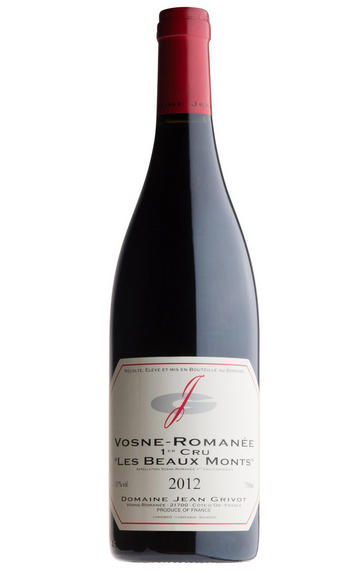
2014 Vosne-Romanée, Les Beaux Monts, 1er Cru, Domaine Jean Grivot, Burgundy
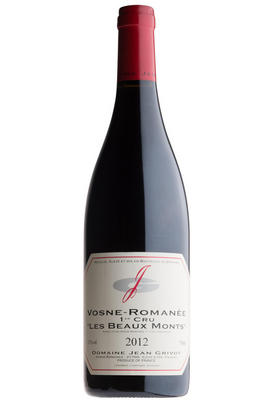
Critics reviews
Neal Martin - 31/12/2015
About this WINE
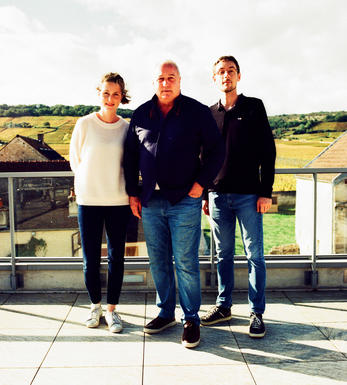
Domaine Jean Grivot
Jean Grivot took over from his father, Gaston, in 1955. He handed the domaine on to son Étienne – married to Marielle Bize from Savigny – in the early 1980s. When Etienne Grivot took over, the house style was for gentle, graceful wines, perhaps a little weak in lesser vintages.
Étienne has since found his own voice, making a range of increasingly fine wines. Since the mid-2000s, he has reduced yields and fine-tuned vineyard and cellar work. The next generation – Mathilde and Hubert – are increasingly influential, working under their father’s experienced and wise guidance.
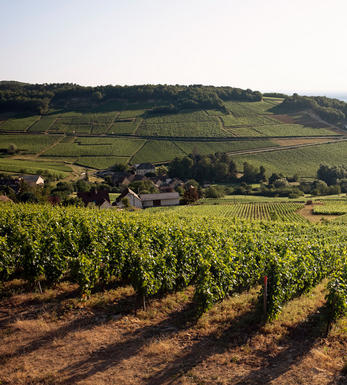
Chorey-Lès-Beaune
Chorey-Lès-Beaune is a wine appellation (AOC) located just a short distance from the town of Beaune, the wine capital of Burgundy. It is part of the larger Côte de Beaune sub-region, known for producing some of the world’s most renowned and sought-after wines.
The primary grape varieties are Pinot Noir and Chardonnay. The reds are typically elegant and medium-bodied and exhibit the characteristic Burgundian flavours of red berries, cherries, and earthy notes. White wines are less common in this appellation but can be fresh, crisp, and mineral-driven.
Chorey-Lès-Beaune shares the same terroir characteristics as its more famous neighbours, such as Pommard and Beaune. The vineyards benefit from limestone-rich soils and a well-suited climate for producing high-quality grapes. The limestone content in the soil contributes to the wines’ minerality and complexity.
In Burgundy, appellations are classified into a hierarchical system based on the perceived quality of the vineyards. Chorey-Lès-Beaune is classified as a Village appellation, one step below Premier Cru and Grand Cru appellations in prestige. However, this does not mean that the wines are of lower quality; they can still be exceptional, and many wine enthusiasts seek out these wines for their value.
Like most Burgundy wines, red Chorey-Lès-Beaune wines pair well with a variety of dishes, including roast poultry, grilled salmon, and dishes featuring mushrooms. The whites, if available, can be enjoyed with seafood, poultry, and creamy sauces.
While Chorey-Lès-Beaune may not have the same level of recognition as some of its prestigious neighbours, it offers wine enthusiasts an opportunity to explore the Burgundian terroir and the classic grape varieties of Pinot Noir and Chardonnay in a slightly more accessible and affordable way.
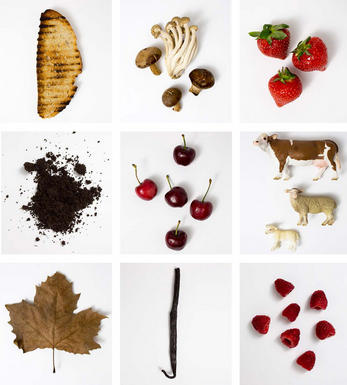
Pinot Noir
Pinot Noir is probably the most frustrating, and at times infuriating, wine grape in the world. However when it is successful, it can produce some of the most sublime wines known to man. This thin-skinned grape which grows in small, tight bunches performs well on well-drained, deepish limestone based subsoils as are found on Burgundy's Côte d'Or.
Pinot Noir is more susceptible than other varieties to over cropping - concentration and varietal character disappear rapidly if yields are excessive and yields as little as 25hl/ha are the norm for some climats of the Côte d`Or.
Because of the thinness of the skins, Pinot Noir wines are lighter in colour, body and tannins. However the best wines have grip, complexity and an intensity of fruit seldom found in wine from other grapes. Young Pinot Noir can smell almost sweet, redolent with freshly crushed raspberries, cherries and redcurrants. When mature, the best wines develop a sensuous, silky mouth feel with the fruit flavours deepening and gamey "sous-bois" nuances emerging.
The best examples are still found in Burgundy, although Pinot Noir`s key role in Champagne should not be forgotten. It is grown throughout the world with notable success in the Carneros and Russian River Valley districts of California, and the Martinborough and Central Otago regions of New Zealand.


Buying options
Add to wishlist
Description
Pure, penetrating purple, this has a magical nose, very lifted. The fruit sits on the cusp of red but perhaps a touch more black, precisely defined, good tannins behind, and enough acidity. Another magisterial wine from this domaine which is on such great form in recent vintages.
Étienne Grivot reports better yields in 2014, about halfway between the miserable crops of the previous four vintages and what would count as a very good year. The grapes are de-stemmed but preserved fully intact using the newest model of destemmer. They were totally healthy in 2014 and Mathilde Grivot describes the wines as being accessible, fresh, yet still complex. We would add that they are – yet again – amongst the finest of the whole Côte.
wine at a glance
Delivery and quality guarantee